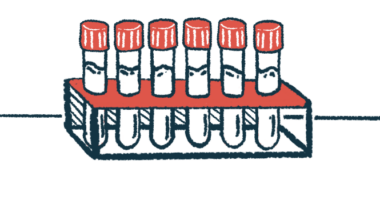First Introductions and Awkward Handshakes

What is the first thing you do when introduced to someone?
You start off with a simple greeting, state your name, and extend your hand for a firm handshake, right? I know I’m going out of my way to state the obvious here, but stick with me. This basic form of etiquette is so ingrained in our brains that it almost becomes second nature. People don’t think twice about giving a quick handshake to the person they have just met. It’s what their mothers and fathers taught them to do at an early age. Say please and thank you, eat your fruits and vegetables, and always remember to give a firm handshake.
Over the years as I’ve sat in my wheelchair, I’ve observed behavior in others; their mannerisms, their body language, and how they always flash a smile with their arm extended in an attempt to appear somewhat interested in the person before them. What has made me so observant in this kind of interaction probably stems from the fact that, as many people with SMA can attest to, I can’t shake people’s hands.
As the millennials say, the struggle is real. In my 27 years of life, I have managed to make 95 percent of meet and greets incredibly awkward for the other party because I cannot reach my arm out to shake someone’s hand. Good one, Alyssa, am I right?
My brother, Adam, and I were sharing a good laugh the other day when this topic came up. Out of all the stories we could reminisce about all the times little ole Alyssa made first introductions incredibly awkward, the following had always been one of our favorites.
This story starts with me sneaking out of the house to visit my brother at college. It was wintertime, and exposing myself to germs was too big of a risk to take. So, I did what most teenagers did when they knew their parents would disapprove — created a little white lie on my whereabouts. (Sorry, Mom and Dad.) When I arrived at the dormitory, my brother’s roommate was nearby getting some work done, so Adam decided to introduce us. He immediately let out his hand to say hello, and I froze. Instead of explaining my limitations, I stared. And, I let the awkwardness of the silence really seep into this poor guy’s head before matters only became worse. The introduction ended with the roommate slowly retracting his arm with a panicked look on his face and giving me a solid, albeit awkward, pat on the head. I never saw him again.
To this day, I cringe when I recount that story. And it isn’t because of how the roommate reacted to the handshake (or lack thereof) but because of how I responded to it. A simple explanation of the fact that I cannot move my arms would have sufficed, but instead, I took the awkward way out. In fact, I didn’t learn my lesson and continued to take this way out with many more encounters, including the time a New England Patriots player tried shaking my hand and decided, in a moment of hesitation, to just grab onto my pinkie finger instead. I didn’t give him an explanation, either.
As I’ve grown older and broken out of my shell, I’ve grown more comfortable in telling people I cannot shake hands. My tone is very nonchalant, and I always assure them situations like this happen all the time. I’ve noticed people tend to feel a little bad after the fact, so now I try to make them feel comfortable by engaging in conversation and pretending like it never even occurred.
Regardless of whether I can reciprocate, I find it acceptable and respectful for people to shake my hand. It’s common courtesy, and when we’re living in a world striving for disability rights and equality, I’d say this is a good start. If you have very limited upper body strength, how do you handle this situation?
***
Note: SMA News Today is strictly a news and information website about the disease. It does not provide medical advice, diagnosis, or treatment. This content is not intended to be a substitute for professional medical advice, diagnosis, or treatment. Always seek the advice of your physician or other qualified health provider with any questions you may have regarding a medical condition. Never disregard professional medical advice or delay in seeking it because of something you have read on this website. The opinions expressed in this column are not those of SMA News Today, or its parent company, Bionews Services, and are intended to spark discussion about issues pertaining to spinal muscular atrophy.









Gina
I found that when I first feel the inevitable handshake or physical contact greeting is growing imminent, it is easier to cross the boundaries, often I say something like, "I can't do that kind, but I can do more trusting kind, as long as you promise not be dangerous!" Yes, a little flirty, but I think we all do it. At this point, my left hand flutters slightly, indicating they can hold it in some way, which usually helps us both to feel a little more comfy. Shaking hands with the right one extended comes from when we had knights, and it was more trusting to extend the sword arm, as it meant you were laid bare in front of a new, and possible enemy, and if they extended their right hand also, an initial armistice was had and talk and frivolity could ensue. Now, of course, most people don't catch slightly nerdy – okay, very nerdy – reference, so if one wants to extend a further familiarity, it can be explained and a couple of giggles thrown in to relax the other party. Build bridges before you realise nobody else was going to, try to build the bridges and then cross over, and help somebody feel more comfortable. Reminding people of their own mortality is always a bit precarious, so I always try to step in and ease their discomfort! To be perfectly honest, I can be incredibly nervous meeting anybody who is different, may be audibly or visually different. Normally the more different, the better for me! Vive la difference!